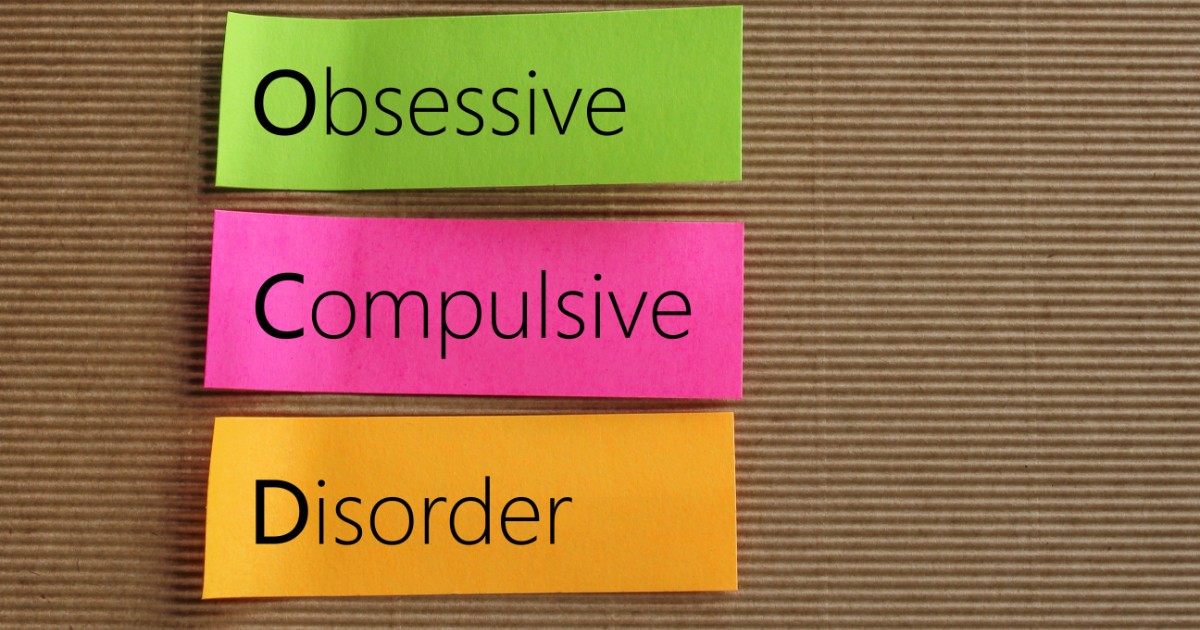Children and teenagers can experience a range of mental health issues, and one condition that can significantly impact their lives is obsessive-compulsive disorder, commonly known as OCD. In this comprehensive guide, we will explore the world of OCD in kids and teens, covering everything from understanding the disorder to treatment options and the crucial role of parents and caregivers.
Understanding OCD: An Overview
Defining OCD
Obsessive-compulsive disorder is a complex mental health condition that affects millions of people worldwide. It is characterized by the presence of recurring and unwanted thoughts, known as obsessions, which lead to repetitive behaviors, referred to as compulsions. These obsessions and compulsions can consume a significant amount of a child’s time and cause distress, interfering with their daily lives and overall well-being.
Obsessions in OCD often manifest as intrusive and distressing thoughts, images, or urges that are difficult to control. They can revolve around various themes, such as contamination, symmetry, orderliness, or even violent or taboo subjects. These obsessions are typically accompanied by intense anxiety or fear.
In an attempt to alleviate the anxiety caused by their obsessions, individuals with OCD engage in compulsive behaviors. These behaviors are repetitive actions or mental rituals that are performed to reduce the distress associated with the obsessions. Common examples of compulsions include excessive handwashing, checking, counting, arranging objects, or seeking reassurance from others.
Common Misconceptions About OCD
Despite its prevalence, OCD is often misunderstood, leading to misconceptions and stigma surrounding the disorder. It is crucial to dispel these misconceptions and gain a deeper understanding of the condition to provide appropriate support and empathy to those affected.
One common misconception is that OCD is simply a personality quirk or a preference for cleanliness. However, OCD is far more than a mere preference or habit. It is a recognized medical condition that involves neurobiological factors, genetic predisposition, and environmental influences. The obsessions and compulsions experienced by individuals with OCD are not within their control and can significantly impact their daily functioning.
Another misconception is that individuals with OCD can easily overcome their symptoms if they just try hard enough or “snap out of it.” This belief disregards the distress and impairment caused by the disorder. OCD is not a matter of willpower or personal strength; it requires proper attention, understanding, and evidence-based treatment approaches to manage effectively.
Furthermore, it is important to note that OCD is not a reflection of an individual’s intelligence or sanity. People with OCD are not “crazy” or “insane.” They are individuals who are facing a challenging mental health condition that deserves compassion, support, and access to appropriate care.
By debunking these misconceptions and fostering a more accurate understanding of OCD, we can create a more inclusive and supportive environment for individuals living with this disorder.
Identifying OCD in Kids and Teens
Common Symptoms of OCD in Children
Children with OCD may display various signs that indicate the presence of the disorder. One common symptom is excessive handwashing, where children feel compelled to wash their hands repeatedly due to an intense fear of contamination. This fear can be so overwhelming that it interferes with their daily activities and causes distress.
In addition to excessive handwashing, children with OCD may also engage in repeated checking of things. This behavior can manifest in various ways, such as checking if doors are locked, if appliances are turned off, or if homework is done correctly. These repetitive actions are driven by a need to alleviate anxiety and prevent potential harm or negative consequences.
Another common symptom of OCD in children is an intense fear of contamination. This fear can lead to avoidance behaviors, such as refusing to touch certain objects or avoiding places that they perceive as dirty or contaminated. These avoidance behaviors can significantly impact a child’s social and academic functioning.
Recognizing these symptoms in children can be challenging, as they may not always communicate their distress or understand that their thoughts and behaviors are not typical. It is essential for parents, teachers, and caregivers to be vigilant and seek professional help if they suspect a child may be experiencing OCD.
OCD Signs in Teenagers
Teenagers, like children, can also develop OCD. However, the symptoms may manifest differently in this age group. Adolescents with OCD often experience intrusive thoughts, which are unwanted and distressing ideas or images that repeatedly enter their minds. These intrusive thoughts can be violent, sexual, or blasphemous in nature, causing significant anxiety and distress.
In addition to intrusive thoughts, teenagers with OCD may engage in rituals related to symmetry or order. They may feel compelled to arrange objects in a specific way, count or repeat certain actions, or perform tasks in a particular sequence. These rituals are performed to reduce anxiety and create a sense of control over their thoughts and fears.
Furthermore, teenagers with OCD often struggle with intense doubts and fears. They may constantly seek reassurance from others, doubting their own abilities or fearing that something terrible will happen if they don’t perform certain rituals. These doubts and fears can be debilitating and interfere with their daily functioning, including schoolwork, relationships, and overall well-being.
It is crucial for parents, teachers, and healthcare professionals to be aware of these signs and provide the necessary support to teenagers with OCD. Early intervention and appropriate treatment can significantly improve their quality of life and help them manage their symptoms effectively.
The Impact of OCD on a Child’s Life
OCD and School Performance
One area where OCD can significantly affect a child is their academic performance. The constant preoccupation with obsessions and the need to perform compulsions can result in decreased focus and difficulty concentrating. These symptoms can make it challenging for a child with OCD to pay attention in class, absorb information, and complete tasks in a timely manner.
Additionally, the repetitive nature of OCD can lead to a child getting caught up in their rituals, causing them to spend excessive amounts of time on certain tasks. This can result in delays in completing assignments and falling behind in their schoolwork. As a result, their grades may suffer, and they may feel frustrated and overwhelmed.
Teachers and school personnel play a vital role in understanding and accommodating the needs of students with OCD. By being aware of the challenges these students face, educators can provide support and make necessary accommodations. This may include allowing extra time for assignments, providing a quiet space for the student to work, or implementing strategies to help them stay organized and focused.
Social Implications of OCD
Beyond the academic realm, OCD can also have significant social implications for a child. The fear of judgment or ridicule due to their compulsions may lead to feelings of shame and embarrassment. This fear can cause a child to withdraw from social interactions and limit their participation in activities they once enjoyed.
Children with OCD may avoid situations that trigger their obsessions or make them feel anxious. This can result in isolation and a sense of loneliness. They may struggle to form and maintain friendships, as their obsessions and compulsions can be difficult for others to understand.
Building a supportive and understanding environment is crucial to help children with OCD feel accepted and included. Educating peers about OCD and promoting empathy can help reduce stigma and create a more inclusive social environment. Encouraging open communication and providing opportunities for children with OCD to express their feelings and concerns can also be beneficial.
Furthermore, involving mental health professionals, such as therapists or counselors, can provide additional support for children with OCD. These professionals can help children develop coping strategies, manage their symptoms, and build resilience.
The Role of Parents and Caregivers
Supporting a Child with OCD at Home
Parents and caregivers play a crucial role in supporting children with OCD. Understanding the condition, providing a safe and non-judgmental space, and collaborating with mental health professionals can help create an environment that promotes healing and growth.
Communicating with Your Child About OCD
Open communication is key to helping children and teenagers with OCD. Listening actively, normalizing their experiences, and involving them in treatment decisions can empower them to navigate their condition and foster a sense of control.
Treatment Options for OCD in Kids and Teens
Cognitive-Behavioral Therapy for OCD
Cognitive-behavioral therapy (CBT) is one of the most effective treatments for OCD in children and teenagers. This therapeutic approach focuses on identifying and challenging obsessive thoughts while gradually reducing the accompanying compulsive behaviors. CBT empowers children to develop healthier coping strategies and regain control over their lives.
Ketamine Infusion Therapy
By acting on certain brain receptors, ketamine can disrupt the obsessive thought patterns and compulsive behaviors characteristic of OCD. Its rapid onset of action, often providing relief within hours, distinguishes it from traditional treatments that may take longer to produce results. Ketamine offers individuals with OCD a new avenue for managing their symptoms and regaining control over their lives.
Medication and OCD Management
In some cases, medication may be prescribed to manage OCD symptoms. Selective serotonin reuptake inhibitors (SSRIs) are commonly used to reduce anxiety and obsessions. However, medication should always be used in conjunction with therapy and under the supervision of a qualified healthcare professional.
In Conclusion
To learn about the OCD treatment and support options we offer, contact Luma Health & Wellness today to schedule a mental health consultation.





